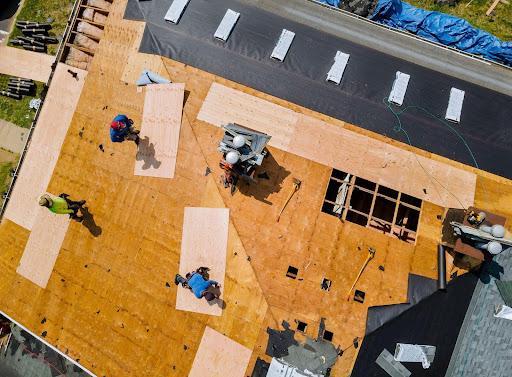
The Gateway Tunnel Project is a major $12.3 billion transportation initiative that will build a new rail tunnel under the Hudson River and fix the old 110-year-old tunnel. This project will make train service between New Jersey and New York City more reliable and frequent, allowing for smoother commutes and better connections. For homeowners and buyers in Bergen, Hudson, Essex, and nearby counties, this project could significantly change property values in the coming years as transportation access is a key driver of real estate prices throughout the region.
Better Trains, Higher Home Prices
The Gateway Tunnel Project will double the number of trains that can travel between New Jersey and New York City, which is great news for North Jersey residents who commute to Manhattan for work. When commutes become easier and faster, home values typically increase because location and convenience remain top priorities for buyers in the metropolitan area.
In towns with train stations along the Northeast Corridor line, property values could rise substantially once the project moves forward. This has happened with other transit improvements in the past, creating wealth opportunities for existing homeowners while changing the affordability landscape for newcomers. Most North Jersey residents know that homes near good transit options to Manhattan usually cost more, and the Gateway Project will make this advantage even stronger in some areas, potentially reshaping neighborhood desirability across multiple counties.
Which Towns Will Benefit Most
Towns like Secaucus, Newark, and Harrison might see the biggest property value increases because of their strategic location on the rail line. Houses and apartments within walking distance of train stations could become much more valuable as commuters increasingly prioritize transit access in their housing decisions.
Studies of similar projects show that homes within half a mile of improved transit hubs often increase in value by 10% or more, creating significant opportunities for current homeowners to build wealth through their real estate investments.
The price increases won’t just happen right next to stations but will ripple outward. As prime locations get more expensive, nearby neighborhoods within driving distance to stations will likely see values rise too, creating secondary hotspots in the real estate market. Some experts believe that for each minute saved on commute time, property values might increase by 1-2% in well-located communities, translating to substantial gains for property owners in the most favorably positioned areas.
Surprising Winners in the Housing Market
While areas right next to train stations will gain value, other less obvious neighborhoods might also benefit from the improved infrastructure. Towns with good bus connections to train stations could see unexpected growth as people look for more affordable options with reasonable access to the enhanced rail service.

As infrastructure projects shift the housing landscape, companies like We Buy NJ Real Estate help homeowners act fast and capitalize on changing market dynamics. These companies offer options for sellers who want to time their sales before construction disruptions or take advantage of rising prices in a transforming market.
Dealing with Construction Challenges
Not everything about the Gateway Project will be positive for property values, especially during the construction phase when disruptions are inevitable. Homes in areas directly affected by construction might see flat prices or small decreases while work is ongoing, creating temporary downward pressure in otherwise desirable locations. This situation creates buying opportunities for investors willing to deal with short-term inconveniences for long-term gains after the project is complete and benefits are realized.
Effects Beyond Housing
The Gateway Project will impact more than just residential properties across North Jersey. Office spaces in transit hubs might become more attractive as New York companies look for cheaper locations with good city access, potentially revitalizing commercial districts that offer convenient connections to Manhattan. Retail spaces near stations will likely see more foot traffic as commuter volumes increase, potentially helping local businesses and shopping areas that have struggled in recent years.
Industrial properties with good access to improved rail connections might also become more valuable, especially for logistics and shipping companies that benefit from enhanced transportation networks. Hotels and lodging in North Jersey might also experience growth as better connections make the area more appealing to business travelers looking for alternatives to expensive Manhattan accommodations, creating new opportunities in the hospitality sector throughout the region.
Timing Your Real Estate Decisions
Homeowners in affected areas should carefully consider their timeframes when making important property decisions. If you plan to sell within 2-3 years, you might want to sell sooner to avoid construction disruptions that could temporarily depress values. However, if you plan to stay 5+ years, holding through project completion could bring significant value increases that outweigh any short-term inconveniences.
Buyers should think about their risk tolerance and how long they plan to own the property before making purchasing decisions in Gateway-affected areas. The biggest value increases will likely come after the project is finished, requiring patience during construction but potentially rewarding those who time their entry into the market strategically.
Financial Planning for Homeowners
Property tax increases are an important consideration that homeowners shouldn’t overlook, as rising home values often lead to higher property taxes that affect monthly housing costs. Homeowners should budget for potential increases even as their home equity grows to avoid financial surprises.
For people nearing retirement, the project timeline might align well with downsizing plans, potentially offering good selling opportunities as values peak after completion, allowing them to maximize their real estate investments.

If you’re planning home renovations, consider timing them with the project schedule for maximum return on investment. It might be wise to wait until after construction disruptions but before values reach their peak, positioning your property to capitalize on the improving market. Rising home values also create opportunities to use home equity for education expenses, retirement accounts, or investment properties, turning infrastructure improvements into financial leverage for forward-thinking homeowners.
Looking at the Bigger Transportation Picture
While the Gateway Project is important, smart property owners should view it as part of a larger transportation network that collectively determines accessibility and desirability. Properties that benefit from both the Gateway improvements and other transit enhancements like expanded bus routes or light rail might see even greater value increases as multiple transportation improvements compound their market advantage. Transportation authorities will likely adjust bus routes and local services to connect better with the improved rail system, potentially creating new accessibility in areas beyond the immediate station neighborhoods as the entire network adapts.
North Jersey’s long-term transportation vision includes improvements to local roads, bike paths, and walking access, all working together to reshape community desirability and property values throughout the region. These interconnected improvements will gradually transform how people move throughout North Jersey, influencing housing preferences and investment opportunities for decades to come.












